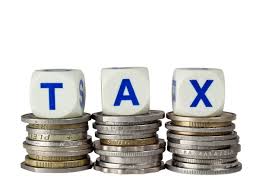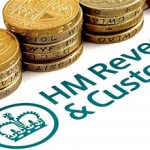SMEs bear brunt of UK’s £10bn Hidden Tax Burden

The UK tax system is costing businesses up to £10bn in hidden costs a year, with SMEs bearing the majority of this burden according to new research by AAT.
Ahead of HMRC’s end-of-the-month self-assessment deadline, AAT has researched the views of 500 businesses to discover the cost of compliance for UK business. It found that SMEs currently spend approximately £9.9bn each year on tax compliance compared to the £100m that larger firms pay.
Tax compliance
On average each of the UK’s 2.25m SMEs incurs £4,376 in tax compliance costs, just under half the £8,907 each of the 9,000 plus large businesses pay on average. However, whilst the average tax burden for SMEs is lower, the vast majority (1.7m) of these enterprises have no more than four employees compared to the 250+ employees found in large businesses. This means that despite a lower headline cost proportionately the impact is much higher on SMEs.
This can also be clearly seen in the amount of time per week businesses spend on tax compliance. The average SME spends up to two hours per week compared to the six hours of an average large business. Whilst the SME total is three times less, the cost to the business itself, is proportionately higher due to their lower head count. This highlights how, with their limited resources, SMEs bear a higher proportion of the burden in meeting their tax compliance obligations. The impact on the economic cost is also larger due to SMEs compromising the majority of businesses in the UK.
Seven out of 10 SMEs said that far too much time is required to deal with tax issues. The same number also stated that the UK tax system is too complicated. This finding was echoed in a study AAT carried out amongst its members who work in accounting and finance. Eight out of ten of these experts in navigating the UK tax system stated that they thought the system is too complicated.
UK tax system effects
Both AAT members and the businesses surveyed agreed that the number one effect of the UK tax system on SMEs is that it makes life harder for small businesses to grow due to them having fewer resources to deal with the burden.
Businesses’ view of the additional consequences of the current tax system are that it creates an uneven playing field between larger and smaller enterprises and it also makes it harder for SMEs to compete in the global market place. AAT members felt that the additional effects of a complex tax system are a detrimental impact on microbusinesses and a contribution to the growing existence of tax avoidance schemes seeking to exploit loopholes in existing legislation.
Furthermore the tax-compliance burden on SMEs also affects the UK’s economic growth. A third of SMEs believed that the money spent on tax compliance would be better spent on sales and marketing to enable them to grow their businesses. Over 10% said that they would hire new staff, helping the Prime Minster to come ever closer to achieving his full employment target, and 10% said they would invest in research & development – driving their business forward through innovation.
Mark Farrar, AAT, Chief Executive, said: “SMEs are the backbone of British businesses but some are being weakened by a £10bn tax burden. It is a strong indicator of just how hard dealing with tax can be when 80% of our members, experts at navigating through the intricacies of tax compliance, state that the UK tax system is too complicated. Making the tax system simpler could help to lift this extraordinary weight, diminishing the costs that SMEs face. This would give SMEs the space they need to invest in growing their business and hiring more staff – a vital component for the UK’s economic recovery.”
Tax simplification
AAT members felt that the tax areas in need of simplification most are, in order, tax relief, capital gains, VAT, corporation tax and income tax.
In the wake of these findings AAT has made the following recommendations for simplifying the UK tax system to help stimulate SMEs growth, crucial to Britain’s economic future. Its recommendations are:
- Combine income tax and national insurance, making it simpler for businesses and individuals to understand their tax affairs
- Streamline tax bands and thresholds
- HMRC to provide clearer information with signposting to make it easier to navigate for business and individual customers
- Make rules clearer by reducing the number of reliefs and rules; consistency would make it easier and less open to exploitation
Brian Palmer, AAT Tax Policy Advisor said: “All political parties have identified small businesses as key to fuelling the UK’s economic growth. However, the tax system needs to be straightforward to make this possible. A simpler system would allow more people to file their own returns, taking control of their own tax planning and diminish the significant cost some, particularly micro and small businesses, encounter. It would also limit the various different interpretations that can lead to loophole tax evasion schemes. This will enable the UK to take the lead in having a simpler and more business-friendly tax system.”
Source: aat – SMEs bear brunt of UK’s £10bn Hidden Tax Burden





























